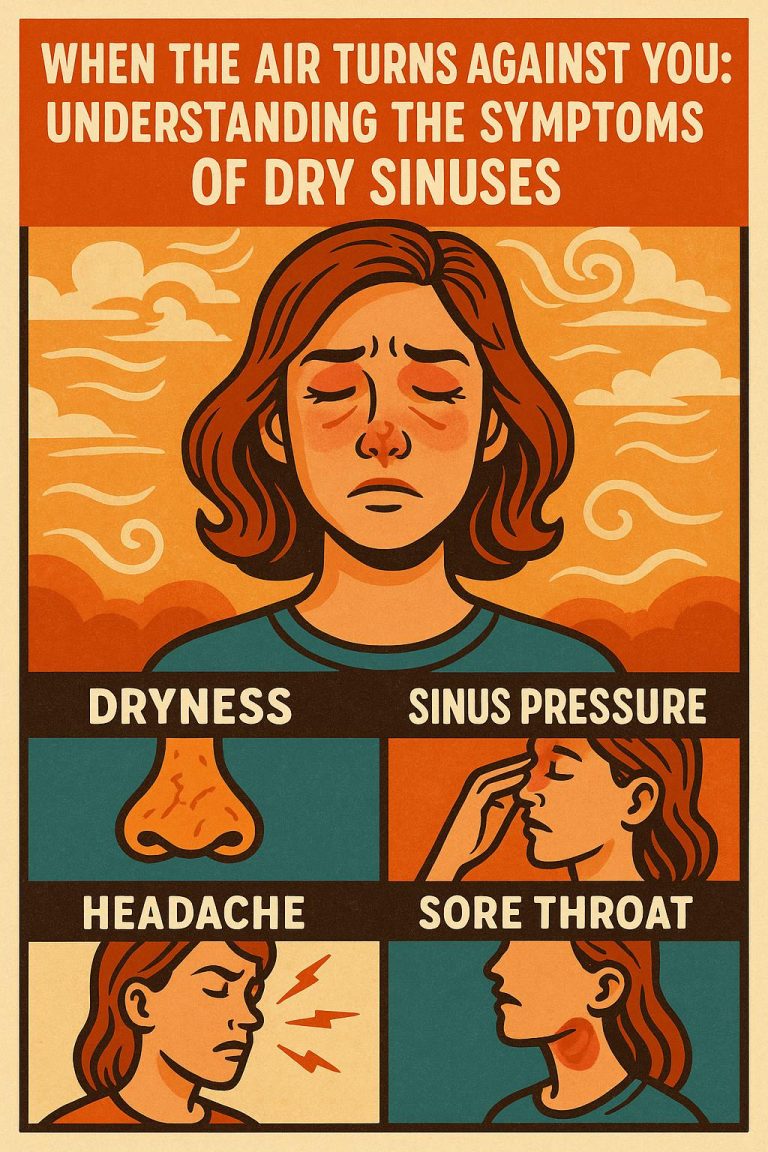There’s something uniquely uncomfortable about feeling like the inside of your nose is lined with sandpaper. You breathe in, and instead of relief, you feel irritation. You try to blow your nose, but nothing comes out. Sound familiar? You might be dealing with dry sinuses, a surprisingly common issue that can leave you feeling both physically miserable and mentally drained.
What Causes Dry Sinuses?
Your sinuses are designed to stay moist. The mucous membranes lining them help filter air, trap bacteria, and maintain a comfortable level of humidity inside your nasal passages. But when those membranes dry out—often due to low humidity, air conditioning, smoking, certain medications, or underlying health conditions—the result can be both painful and disruptive.
Dry sinuses can affect anyone, but people living in arid climates, frequent travelers, or those undergoing certain medical treatments may be particularly at risk.
Recognising the Signs: More Than Just a Dry Nose
Unlike a temporary sniffle, symptoms of dry sinuses often linger and worsen without proper care. Some of the most common signs include:
- Persistent dryness or a feeling of tightness deep in the nose or face
- Headaches or facial pressure, especially around the eyes and cheeks
- Nasal congestion despite a lack of mucus
- Nosebleeds caused by cracking of the delicate nasal lining
- Burning sensations or irritation during breathing
- Bad breath or a dry mouth, especially overnight
One of the more confusing aspects of this condition is that you may feel “stuffed up” even though your nasal passages aren’t full of mucus. This kind of nasal congestion is typically caused by inflammation and swelling—not actual blockage.
When Nosebleeds Become a Clue
Frequent nosebleeds are one of the most telltale signs that your sinuses are too dry. When the sensitive inner lining of the nose cracks due to lack of moisture, it can bleed even with minimal irritation—like blowing your nose or exposure to cold air.
If you’re noticing recurrent nosebleeds along with other symptoms like facial pressure or difficulty breathing comfortably, it’s worth investigating whether dry sinuses are to blame.
What You Can Do About It
Managing dry sinuses usually involves a combination of prevention and symptom relief:
- Use a humidifier in your bedroom or office, especially during winter or in dry climates.
- Stay hydrated throughout the day.
- Avoid excessive use of nasal decongestant sprays, which can worsen dryness.
- Try saline sprays or rinses to keep the nasal passages moist.
- Consider natural nasal moisturizers to soothe and protect irritated tissue.
And importantly, if symptoms persist for more than a few days or are accompanied by severe pain or fever, consult a healthcare provider to rule out infections or other sinus-related conditions.
Final Thoughts
Living with dry sinuses can be more than a minor annoyance. It can impact your sleep, productivity, and overall sense of well-being. By understanding the early signs—including nasal congestion and frequent nosebleeds—you can take steps toward better sinus health and comfort.

